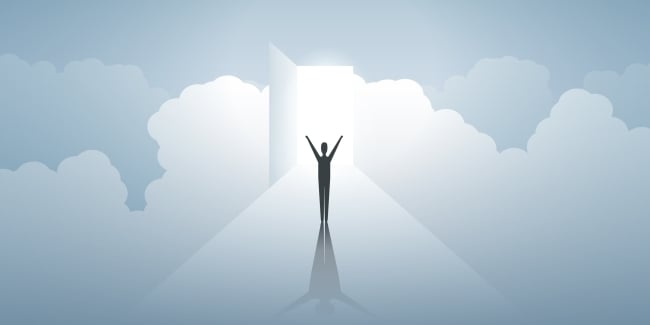You have /5 articles left.
Sign up for a free account or log in.

agotaj/iStock/Getty Images Plus
These are rocky times for professors, no doubt, leaving many of us off-balance, trying to get our bearings. With a multitude of external challenges ranging from the shortfalls of budgets to the public’s skepticism of higher education’s value, I don’t have to look far for colleagues that are angry, depressed or frustrated.
But often overlooked in this turbulent period is something over which we do have control: ourselves.
For ourselves, we always have the option of doing a professional reset. Recently, mine is this: I’m focusing more on who I am and less on what I do.
We academics often have trouble separating our identities from our work. Our reluctance to do so stems from some of the most admirable aspects of our character—our passion for our work, our belief in the value of our disciplines, our commitment to this distinctive kind of life.
Such reluctance can run deep. So much so that a recently retired friend asked me, “But who am I now?”
While retirement might force a recalibration of the absorption of our identities into our work, we would be wise to do it earlier.
For this absorption, when left unchecked, depletes us. It puts strains on our relationships, our health, even on our potential for simple moments of serenity.
If we did such a recalibration from the start, what would be different about our careers? We’d have better balance, of course. But even more important, we’d also get a better sense of ourselves, of who we are and, ultimately, of what we should aim for in our professional accomplishments.
With this inward turn, I’m tapping into something that preceded me becoming a professor and will continue when I leave the academy.
I remember the way I framed my core identity during my early 20s. It was—and is—a commitment to the twin values of seeking and service. My penchant for seeking surfaced early on; I often remember how, to my father’s annoyance, I endlessly peppered him with questions as he was trying to concentrate while driving. Now, at this point, my desire to understand the world around me is something I doubt I could jettison, even if I wished to do so. While the topics that spark my curiosity have evolved considerably over the years, this basic inquiring spirit abides as part of my identity.
That said, seeking by itself always felt oddly incomplete, as if its isolation deprived it of its fuller meaning. The famous analogy of Plato’s cave captivated me as an undergraduate, as I followed its progressive understanding of reality from the illusion of the shadows to the illumination of the sun. I remember reading The Republic for the first time and having trouble catching my breath, as I was overwhelmed by the power of its philosophic vision.
For Plato, the cave’s interior represented the everyday, physical world perceived by our senses, and the cave’s exterior represented the intellectual realm accessible through our reason and philosophic reflection. Thus, when I leave the intellectual realm to do community service in the more everyday physical world, I am returning to living in the cave. Even after having glimpsed what lies beyond it, I chose to live most of my life within the quotidian virtues of the cave’s interior. During my college years, I would regularly abandon the library for community service, taking low-income kids from the city on field trips, for instance, or volunteering at a nearby halfway house. I needed to know the difference my breathless sojourns might make to the lives of those around me.
Who you are always has a transcendent dimension, something that can neither be fully captured nor exhausted by the challenges of your professional life, providing a lodestar even in the most turbulent of times. For me, this lodestar is a double commitment to seeking and service. Yours will be different and distinct, of course. But the important thing, I’ve found, is to regularly embed and nurture this dimension in your daily actions.
As of late in my life, this means adopting a different stance toward my work. I’ve taken to saying about the liberal arts college where I teach that I am in the place, but not of the place. While I am drawn irresistibly to teaching at a liberal arts college, I never want to lose a critical vantage point from which to view it. The depth of my attraction to teaching here lies not simply in what it is, but, just as powerfully, in what it could be and the kind of contribution I might make. For instance, believing that liberal arts colleges are in a distinct position to envision the study of law as involving more than vocational training, I recently created a certificate program for the multidisciplinary study of legal phenomena, including literary, economic, philosophic and cultural perspectives. It was a small yet distinctive difference I could make.
Thus, the virtue of maintaining a critical vantage point—one arising from an awareness of who you are at work—is not only the personal guidance it provides amid disruptive times. It is in the capacity to envision and work toward something better than the current state of affairs. It enables a Platonic moment, even amid the more mundane struggles of my job. It reminds me on occasion to turn from the shadows to the light that ultimately makes possible their understanding.




